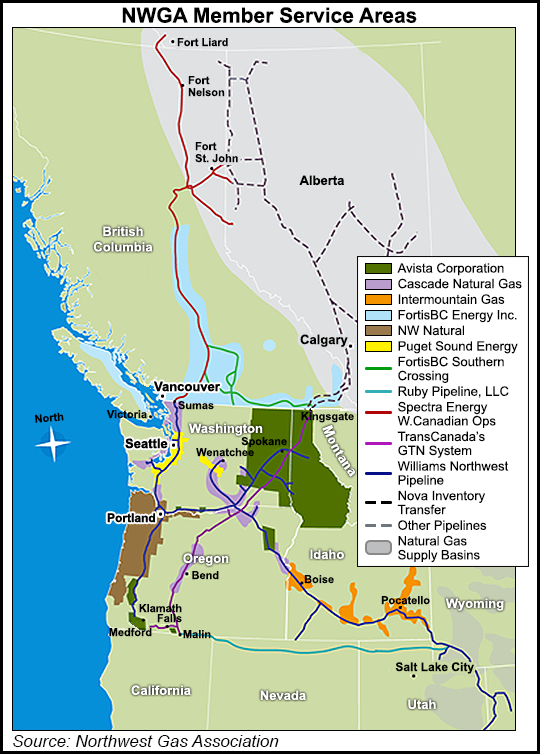NGI All News Access | Coronavirus | Infrastructure
Coronavirus Reality Hits Pacific Northwest, but Energy Providers Said Ready
With the largest initial U.S. outbreak of the coronavirus centered in Washington state, the Pacific Northwest received an early wake-up call, and energy providers have hit the ground running to protect their essential services and support community response efforts.

Spokane, WA-based Avista Utilities, which operates natural gas and electric systems in Idaho, Oregon and Washington, has closed its offices to the public and employees whose jobs are not critical to the safety of energy systems.
“The response to the outbreak from state and federal governments has demonstrated the need to move quickly to respond to the changing situation to preserve the health and safety of our employees and customers,” said CEO Dennis Vermillion. There were no confirmed cases among Avista employees as of last Wednesday, he said.
Avista has stopped utility disconnections in all three states. “We know the way we serve and engage with our customers during this uncertainty will look and feel different, but we remain committed to managing through this together,” Vermillion said.
Spokesperson Melissa Moore said it is too early to identify definitive impacts on the utility NW Natural’s gas system. “After you normalize impacts of weather, natural gas demand is slightly less — maybe 10% — due to various business closures and/or restrictions such as school and restaurant closures,” Moore said.
Like many of their counterparts in the region, NW Natural is limiting nonessential, in-home service visits, such as routine inspections, and has said it will discontinue service disconnections.
Andrew Padula, a spokesperson for Bellevue, WA-based Puget Sound Energy said the combination utility is suspending nonemergency services, and when in customer homes and businesses, practicing social distancing.
“As for demand, it’s too early to tell the full impacts on our forecasts, but we will continue to monitor the demand and try to better understand the impact,” said Padula.
Portland General Electric spokesperson Steve Corson said the power utility has detected some initial impacts on electric loads. “It will be a few more days before we can really quantify those impacts, separating out seasonal factors,” Corson said.
“We also have established a mandatory work-from-home policy for all employees — like me — who can do that,” Corson said. “While to the extent possible maintaining as-normal-as-possible operations for maintenance/repair and essential system work.”
At the Northwest Gas Association, Executive Director Dan Kirschner said he has limited access to NWGA’s pipeline, utility and producer members from his home, but also because the members are “focused on their respective responses to COVID19.
“There may be some decline in energy demand from the industrial sector,” said Kirschner, qualifying his comments as conjectures with no verification available at this time. “The commercial sector (restaurants, office buildings, institutions, etc.), many of which are operating in a limited manner or are completely shut down, could experience significantly reduced demand, while there might be some increase in residential use as people stay home.
“Many energy providers have suspended disconnects and late fees during this unprecedented time and are working with their customers to help mitigate the impact of the corresponding economic disruption including unemployment. An economic slowdown could hurt energy providers through increased uncollectible bills, but right now, however, they are keenly focused on safely and reliably operating their systems, protecting their workers and helping their respective communities navigate this unprecedented circumstance.”
Kirschner also noted that on Thursday the Jordan Cove liquefied natural gas (LNG) export project gained federal approval, which could bring more supplies into the region through the southern end, providing good potential for new industrial load and economic growth. NWGA never took a public position on the long-standing LNG project, he noted.
© 2024 Natural Gas Intelligence. All rights reserved.
ISSN © 1532-1231 | ISSN © 2577-9877 |
